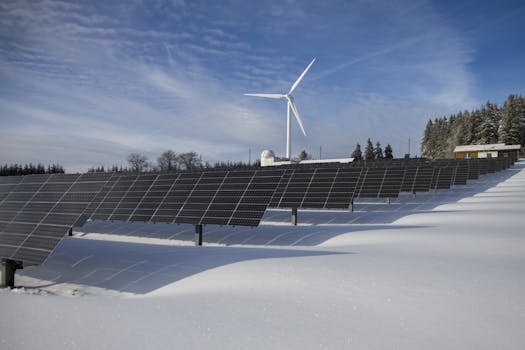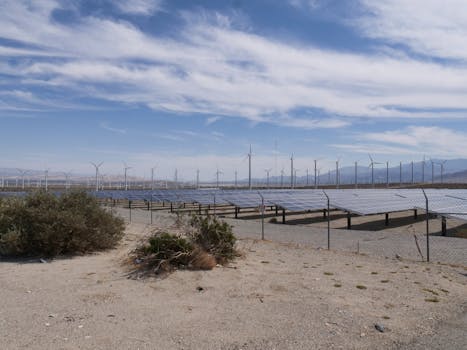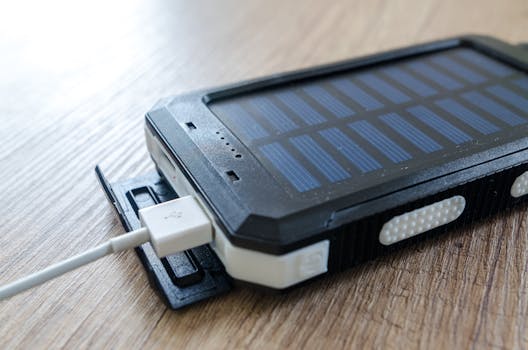
Introduction

Breakthroughs in renewable energy technology are pivotal in addressing global sustainability challenges. These innovations not only promote cleaner energy sources but also significantly reduce our carbon footprint. In this article, we delve into recent advancements in renewable energy and their contributions to a more sustainable future.
Advancements in Solar Energy

Solar energy technology has seen remarkable breakthroughs, particularly in solar panel efficiency. Traditional solar panels typically convert about 15-20% of sunlight into electricity. However, new materials, such as perovskite solar cells, have achieved efficiencies exceeding 25%. This increase is crucial for maximizing the energy output from solar installations, making solar energy more viable for widespread use.
In addition, innovative solar tracking systems are improving energy capture by adjusting the angle of panels throughout the day. These advancements are making solar energy a more attractive option for both residential and commercial applications.
Wind Energy Innovations

Wind energy is another renewable sector experiencing significant advancements. The development of larger and more efficient wind turbines has led to increased energy production. Today’s turbines can generate power at lower wind speeds, which expands the potential for wind farms in various geographical locations.
Moreover, floating wind farms are emerging as a game-changer, allowing for the installation of turbines in deeper waters where winds are stronger and more consistent. This technology not only reduces the visual impact on coastal communities but also enhances energy generation capabilities.
Energy Storage Solutions

One of the critical challenges in renewable energy is storage. Breakthroughs in battery technology, particularly lithium-ion and solid-state batteries, are addressing this issue. These advancements enable the storage of excess energy generated during peak production times, ensuring a reliable energy supply even when production is low.
In addition, innovations in hydrogen storage are gaining traction. Hydrogen can be produced from renewable sources and stored for later use, providing a clean energy carrier that can power various sectors, including transportation and industry.
The Role of Smart Grids

Smart grid technology is revolutionizing how energy is distributed and consumed. By integrating renewable energy sources, smart grids optimize energy flow and enhance efficiency. They allow for real-time monitoring and management of energy use, which is essential for accommodating the variable nature of renewable energy sources.
Through advanced metering infrastructure and demand response programs, smart grids empower consumers to manage their energy consumption better, leading to reduced costs and lower emissions.
Conclusion

Breakthroughs in renewable energy technology are crucial for promoting sustainability and combating climate change. As solar, wind, and energy storage technologies continue to evolve, they pave the way for a cleaner, more sustainable future. Embracing these innovations will not only enhance energy security but also contribute to a healthier planet for generations to come.






